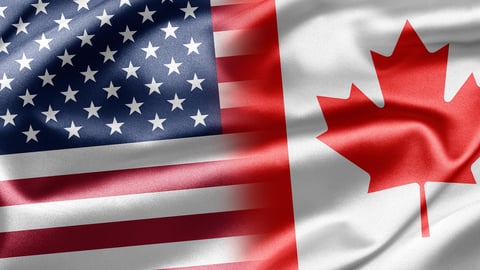Trump reaches tariff deal with U.K.
President Trump has reached a trade agreement with U.K. prime minister Keir Starmer that will increase U.S. access to U.K. markets while limiting tariffs on U.K. imports.
In a May 8 ceremony at the White House, Trump and Starmer announced that the U.S. and U.K. had negotiated a deal that will maintain the current baseline reciprocal 10% tariff rate set on April 2 on most goods imported to the U.S. from the U.K.
The deal will also expand U.S. market access in the U.K, creating what a White House fact sheet says is a $5 billion opportunity for new exports for U.S. agricultural businesses and producers.
This includes more than $700 million in ethanol exports and $250 million in other agricultural products, like beef. The agreement also commits the two countries to work together to enhance industrial and agricultural market access and creates what is being termed a “secure supply chain” for pharmaceutical products.
“The deal includes billions of dollars of increased market access for American exports, especially in agriculture, dramatically increasing access for American beef, ethanol, and virtually all of the products produced by our great farmers,” said President Trump. “The U.K. will reduce or eliminate numerous non-tariff barriers that unfairly discriminated against American products.”
In addition, the pact carves out exemptions for imports of autos, aluminum and steel from the U.K. Under the deal, the first 100,000 vehicles imported into the U.S. by U.K. car manufacturers each year are subject to the reciprocal rate of 10%, and any additional vehicles each year are subject to 25% rates.
The U.S. also pledged to negotiate an alternative arrangement to the current tariffs on steel and aluminum imported from the U.K. and the deal creates a new trading union for steel and aluminum.
“This is going to boost trade between and across our countries,” said Prime Minister Starmer. “It’s going to not only protect jobs, but create jobs, opening market access.”
According to the White House, U.S. total goods trade with the U.K. was an estimated $148 billion in 2024.
Roughly 60 countries which charge higher duties on U.S. imports had tariffs higher than 10% imposed on their goods coming into the country, although with the exception of China, those tariffs have since been paused until early July.
[READ MORE: Trump pauses most reciprocal tariffs, raises China levy]
Most were set at what Trump called a "discount" of roughly half the tariff rate they charge on U.S. goods, including trading partners such as the E.U., India and South Korea.
These tariffs built on a series of executive orders issued March 4, 2025, in which Trump enacted a 25% tariff on nearly all goods coming to the U.S. from Canada and all products being imported from Mexico. In addition, tariffs on imports from China run as high as 145%.
"Tariffs are a tax paid by the U.S. importer that will be passed along to the end consumer," David French, NRF executive VP of government relations, said in a public statement issued when Trump initially announced he would implement reciprocal tariffs. "Tariffs will not be paid by foreign countries or suppliers. We encourage President Trump to hold trading partners accountable and restore fairness for American businesses without creating economic uncertainty and higher prices for American families."




